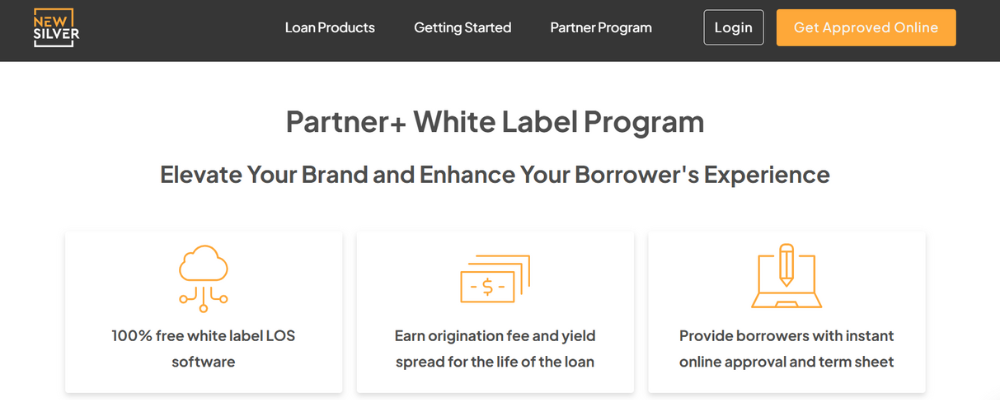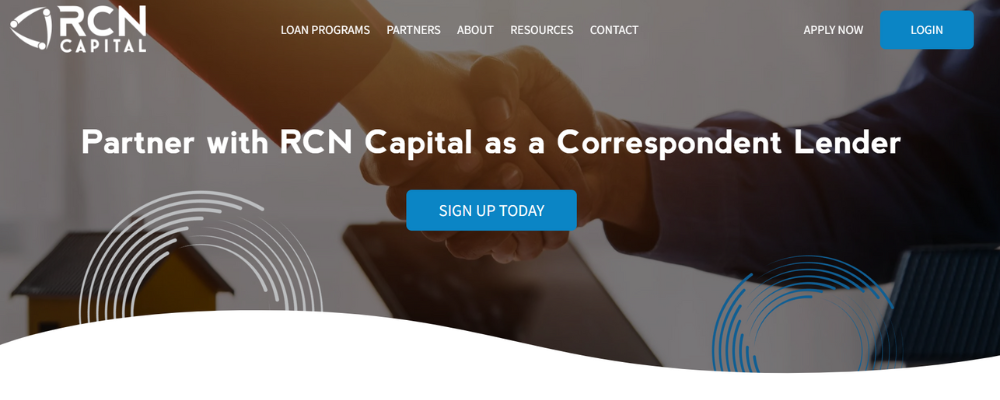The Short Answer
A private money loan is a short-term, asset-backed loan offered by private individuals or organizations instead of traditional lending institutions. They’re especially popular with those who are doing real estate investing because they are faster to fund, easier to qualify for, and come with more flexible terms. However, they also carry higher interest rates due to the increased risk, but for real estate investors this can be mitigated.
If you’re considering offering private money loan options, it’s essential to understand how to structure them properly, what should be included in your lending contracts, and whether your state requires a lending license. Some private money lenders, like New Silver Lending, have simplified this process by offering white label lending programs that allow others to offer real estate investors’ loans under their own brand while leveraging an experienced, compliant infrastructure.
Jump To
Simple Definition Of A Private Money Loan
A private money loan is a short-term loan provided by a private lender, such as an individual, a company, or a private organization, rather than a traditional lending institutions. These loans are especially popular among those who are real estate investing because they aren’t subject to the same strict regulations as conventional financing. That means they’re usually easier to qualify for, can be funded much faster, and often come with more flexible terms. However, due to the fact that these loans carry more risk for the lender, they typically come with higher interest rates.

Structuring A Private Money Loan: Step-by-Step Guide
If you’re planning to provide private money loan options, structuring them correctly is essential for minimizing risk and setting up both parties for success. Here’s a practical step-by-step guide to help private money lenders build a strong foundation for every loan—whether you’re lending to a seasoned investor or someone just starting out. Private money lenders like New Silver Lending, for example, use these fundamentals to streamline the loan process and protect both borrower and lender throughout the deal.
Step 1: Define Your Lending Range
One of the most common missteps private money lenders make is overextending themselves—either by lending too much on a single deal or spreading themselves thin across too many projects. Before entering any agreement, it’s crucial to establish your personal lending limit. This should be based on a combination of factors: your risk tolerance, available capital, and the borrower’s credibility. By defining a clear boundary and sticking to it, you reduce the chance of financial strain if a borrower defaults or a project takes longer than expected. Having a lending range also helps you evaluate whether a deal aligns with your investment strategy or stretches your resources too far.
Step 2: Determine the Loan Amount and Terms
Once your lending range is set, it’s time to define the specific terms of the loan. This includes calculating the total amount you’re willing to fund based on the project’s needs and your comfort level with the borrower. You’ll also need to outline the full loan terms, such as:
- Loan amount: Typically 60–75% of the property’s after-repair value (ARV) to keep the loan secured
- Interest rate: Generally between 9.25–11.25%, depending on the borrower’s experience and the deal’s complexity
- Loan term: Often ranges from 6 to 24 months, with flexibility depending on project type
- Repayment structure: Could include interest-only monthly payments with a balloon payment at maturity, or a fully amortized schedule
- Origination fees/points: Usually 1.25 – 1.75% of the loan amount to cover administrative and processing costs
Make sure to tailor these terms to reflect the project’s risk profile, borrower history, and market conditions. A one-size-fits-all approach rarely works in private lending, so don’t be afraid to adjust your terms to fit the deal.
Step 3: Create a Formal Loan Agreement
Once the loan structure is finalized, you need to document everything in a formal, legally binding agreement. The written contract serves as the official record of the deal, ensuring that all terms are clearly communicated and enforceable under state law. While templates can help, it’s highly recommended that a legal professional or lending advisor review the agreement to make sure it aligns with your state’s requirements. A strong contract reduces ambiguity, sets expectations, and provides peace of mind for both lender and borrower.

Step 4: Conduct Due Diligence
Due diligence is your opportunity to fully understand the borrower, the property, and the project itself. This process should be detailed and thorough, particularly if you’re lending to a borrower you haven’t worked with before. At a minimum, private lenders should:
- Review the borrower’s credit report, bank statements, and tax returns
- Analyze cash flow and debt-to-income ratio to assess financial stability
- Conduct a full property appraisal by a licensed professional to verify current and potential value
- Run a title search to confirm the property has no existing liens or legal disputes
- Assess the borrower’s business plan, including budget, timeline, contractor experience, and exit strategy
In addition, consider doing a site visit or requesting a third-party inspection report. The final step in due diligence should always be a comprehensive risk assessment—determine what could go wrong and how you’d respond. Ask yourself: Can I recover the funds if this borrower defaults?
Step 5: Close the Loan
Once all the documents are in place and due diligence is complete, it’s time to move toward closing. This is the final step before funds are released. Typically, a real estate attorney or title company will oversee the process to ensure everything is handled legally and professionally. At closing:
- All final documents are signed and notarized
- The lien is recorded with the local county to secure the lender’s interest
- Loan funds are transferred to the borrower through escrow
- The borrower officially begins their repayment obligation per the loan schedule
After closing, ongoing communication is key. Private money lenders should stay in touch with the borrower, especially for renovation or fix-and-flip projects, to monitor progress and ensure everything is on track.
Key Elements To Include In A Private Lending Contract
A private lending agreement—commonly referred to as a loan agreement or promissory note—should contain all the essential elements that clearly define the terms of the deal. These include:
1. Full legal names and contact information of all parties involved
2. Total loan amount being provided
3. Agreed-upon interest rate and how it will be applied
4. Duration of the loan (start and end date)
5. Repayment schedule and frequency (e.g., monthly, quarterly)
6. Collateral securing the loan, typically the subject property
7. Specific consequences in the event of default or missed payments
8. Any late payment fees or penalties
9. Terms for early repayment or prepayment without penalty
10. The governing law and jurisdiction for legal matters
Including these details not only protects your financial interests but also adds professionalism and transparency to the transaction.

Do You Need A Lending License To Offer Private Money Loans?
Whether or not you need a license to offer a private money loan depends largely on state-specific regulations, the type of property securing the loan, and whether the loan is intended for consumer or business purposes.
In many states, private money lending does not require a license if the loan is made for business or investment purposes, such as funding a fix-and-flip property. However, if the loan is secured by residential real estate, especially properties with one to four units, licensing requirements can become stricter. Some states mandate a license for any loan secured by real estate, while others focus primarily on consumer-purpose loans rather than business-use loans.
For example, New York State has some of the most stringent rules in the country. According to NYC Business (.gov), any person or company that issues:
- A loan of $25,000 or less to an individual, or
- A loan of $50,000 or less to a business
with an interest rate above 16 percent must be licensed as a lender under New York law. Lending at higher interest rates without a license is prohibited and could result in criminal or civil penalties. These thresholds are especially important in private money lending, where interest rates are often higher due to the short-term nature and risk profile of the loan.
Some states, like California, require a lending license for most real estate-secured lending activities. Others, such as Texas or Arizona, have more flexible rules when the loan is for business purposes. In certain cases, licensing is only required if the property is owner-occupied or if the lender completes several loans per year.
If you’re considering offering private money loan options, it’s important to:
- Review your state’s financial regulations
- Understand the difference between consumer-purpose and business-purpose loans
- Evaluate whether the loan amount, interest rate, or type of collateral might require a license
Should You Consider Becoming A White Label Private Money Lender?
Becoming a white label private money lender allows businesses to offer real estate investment loans under their own brand, while leveraging the infrastructure, capital, and expertise of an established lending partner. In this arrangement, the white label provider handles underwriting, servicing, and funding behind the scenes, while your business presents the loan products as its own. This model is ideal for companies that want to expand into private money lending without building the entire operation from scratch. Two reputable examples of private money lenders providing white label platforms are:
New Silver

New Silver’s partner program offers a white label option for correspondent lenders. Within this program, private money lenders can sign up and market New Silver’s loan products as their own. These private lenders or businesses can use their own logo, as well as other branding opportunities. New Silver offers secure funding in as little as a few days, so that investors can beat the competition.
While New Silver still underwrite the loans, the face of the origination process and post loan closing falls under the correspondent. Correspondents will also be able to control certain features within the loan process, such as pricing.
New Silver’s correspondent program is geared to fix and flip originators, with instant proof of funds and term sheets. Both fix and flip and ground up construction loans are offered on the correspondent program through secure funding. Borrowers can get up to $5,000,000 capital with each of these loans, and loans are up to 18 months with up to 100% construction financing.
RCN Capital

RCN Capital offers a white label solution for correspondent lenders to help them build their businesses, by supporting them in the background. RCN’s proprietary software allows the broker or correspondent to use their own branding, which allows them to be seen as the private lenders closing the loan. RCN Capital offers pre-approval of less than 24 hours on loan applications, and as a direct lender, RCN Capital underwrites all loans.
Key benefits of white label lending include:
- Faster loan processing, since the platform is already built and compliant
- The ability to originate loans without significant capital, using the partner’s funds
- Stronger brand presence, as your company becomes the face of the loan process
- Reduced risk exposure, since the white label provider typically handles servicing and default mitigation
- Scalability and leverage, allowing you to grow your volume without heavy investment
This approach is well-suited for real estate professionals, brokers, or companies with a strong investor network that want to offer financing solutions under their own brand. If you’re looking to expand your services, generate additional revenue, and increase brand authority without the burden of managing a full private money lending operation, white labeling can be a strategic path forward.
Final Thoughts - Are You Ready To Offer Private Money Loans?
Private money lending can be a highly rewarding way to generate income, expand your brand, and support real estate investors in need of fast, reliable funding. That said, it’s not without its complexities. To succeed in private money lending, you’ll need a solid understanding of how to structure deals, assess risk, stay compliant with state regulations, and protect your interests with clear contracts.
Whether you’re looking to lend your own capital or grow a lending business without starting from scratch, platforms like New Silver’s white label correspondent program can provide the tools, funding, and infrastructure you need. By leveraging a trusted private lender, you can focus on growing your brand and serving your clients while leaving the back-end logistics to experienced professionals.
If you’re ready to take the next step into private money lending, preparation and the right partner can make all the difference for potentially private money lenders.




